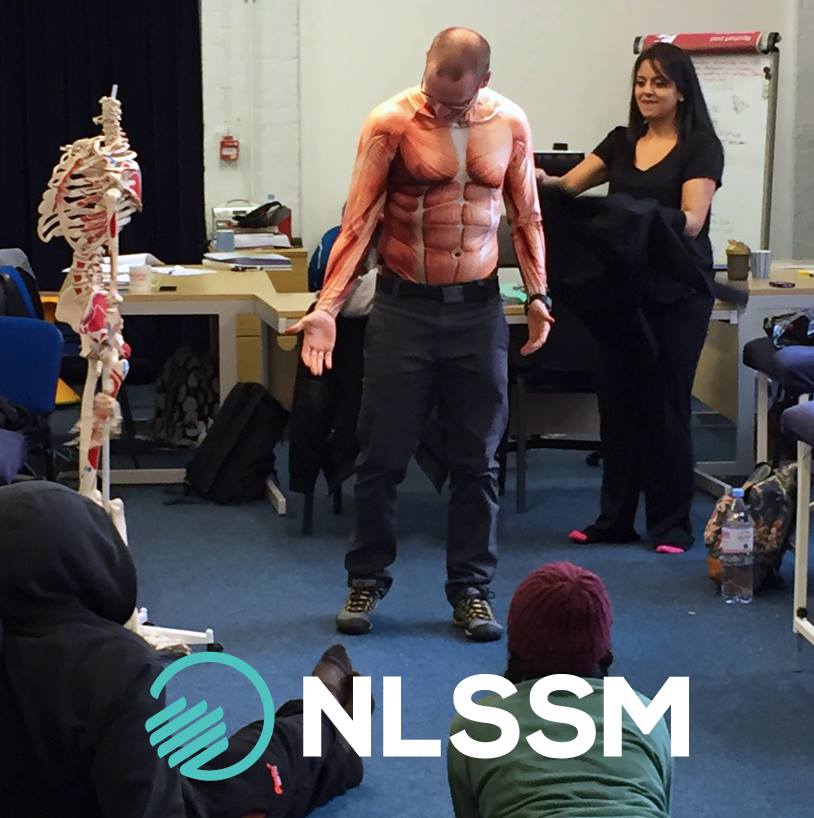Chronic Pain Management
Simple online booking >>
It's a strange thing to say, "I'm passionate about chronic pain", but that is the truth of it. People suffer pain over extended periods of time for many reasons but almost always the pain is prolonged because they are making a few simple mistakes.
By placing our emphasis on support and education we are able to help our clients make positive changes that can overcome the cycle of pain.
Chris Newton.
How Can We Help?
You've probably realised by now that no one thing helps chronic pain. That's why we take an integrated approach.
Four Reasons We Feel Persistent Pain
There are actually only four reasons people feel persistent pain. Tissue Damage, Tissue Compression, Nerve Compression and Learnt Pain.
It is important to take an approach that recognises these four pain drivers and treat accordingly.
Our approach is to use an individualised treatment approach that helps you overcome whatever pain type you have.
Our Approach to Persistent Pain
The tools and techniques we use at Muscle Therapies are ones that are known to be helpful in managing one or more of the four pain drivers. As we work together the goal is to use these approaches to improve the way you produce and process sensory information that results in pain. Working together we will help you learn what is safe again in order to help you recover. These are some of our approaches and the reasons we use them.
Detailed Testing & Assessment
Testing is at the heart of what we do. Testing allows us (by "us" I me you and me) to learn about your pain sensitivity. It will help us find out what your pain is not so eventually we can learn what your pain is. You might want to read our article "The Needle in the Haystack" for more information on this.
Once we can narrow down which pain driver affects you the most, we can set about creating a bespoke plan.
Education
Education is at the heart of what we do here. Professor Lorimer Moseley, the leading persistent pain researcher today, says "Overcoming persistent pain is about gaining credible evidence that you are safe to move". Many times that evidence comes in the form of learning the rules of pain, like why your pain is following a "learnt pain" set of rules and not a "tissue destructive" set of rules for example, or vice versa. This knowledge allows you to let go of many of the fears you may have developed due to a misunderstanding of pain. If you understand your pain is "learnt", "reflexive" or actually "tissue damage", it is much easier to commit to a treatment and home-care plan that gets you better, because the plan now has context.
Functional Neurology (P-DTR)
A technique directed at a form of "learnt reflexive" pain in your nervous system. It gives us clues to how you might be compensating by allowing us to see what reflexes are being generated. Learnt pain can be in the form of sensitisation of the nerve endings in your body that send signals to your brain, called Nociception. When nerve endings are activated they cause reflexive muscle actions, like pulling your hand away from a hot stove for example. When sensitised, the pulling away reflex will show up even months after the injury occurred. P-DTR Functional Neurology can help us resolve this type of pain driver.
Removing reflexive patterns also has a good effect on tissue or nerve compression pain types, recovery during sleep and general tension, so this is a technique we highly recommend in the early stages of work we do with you.
Sports and Remedial Massage (Soft Tissue Therapy)
Sports Massage is particularly good at dealing with tissue compression pain, called Ischemia. Pain from tissue compression happens because blood oxygen levels reduce in localised tissues, so acidity builds up. Having a range of techniques that can help decompress these areas is vital to helping manage discomfort.
There is a lot of research that supports Remedial Massage in helping not only compression issues but also in helping relax stress levels and bring awareness to the body - all issues known to reduce the occurrence of persistent pain.
Corrective Functional Exercise
Movement is absolutely key to recovering from Chronic pain. Pain causes us to change our movement habits and we learn behaviours that limit activity in painful areas. It is likely you can list off a few movements that cause pain, so it is no wonder you might decide to avoid them.
Corrective Functional Exercise is designed to help you gradually expose yourself to things you thought you couldn't do, whilst in a safe and controlled environment. The idea is to rebuild your confidence and eventually break your limiting movement beliefs. This is a fun and extremely liberating experience to go through and one of the areas of work we find most fulfilling at Muscle Therapies.
Final Thought
Most therapist like to keep an air of mystery to their "treatments". They would like you to think that they can "fix" you. Fixing people is something no therapist does. Instead, I believe we "facilitate change" in people. We ask questions, offer the body a better environment, through a change in tissue condition or mindset, then let your body does what it was designed to do - heal itself.
We would love to help you on your journey into discovering how to improve your health. Book a free consultation to chat through your situation below.

Chris loves to educate both his clients and students in a fun and uniquely informative way. Here he is wearing a muscle suit to help his students understand how tissues get injured in everyday shoulder movements.
Pricing: £50 per appointment
Block bookings available on request